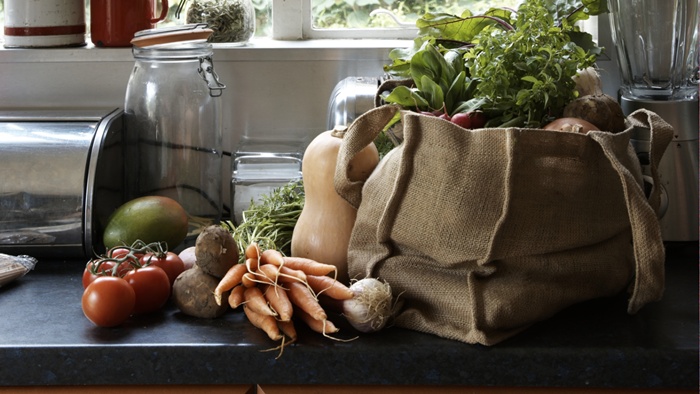
The father of medicine, Hippocrates, was certainly onto something when he said, “Let food be thy medicine.” But did you ever think the statement could have some real meaning in today’s world full of technological advancements?
Well, if you look around your kitchen, you may spot several different foods that can be used as a remedy or to improve your health, much like modern medicine can.
1. Ginger
This herb is actually a root that can be eaten raw added to your food or in cooking, especially in Asian and Indian recipes. Ginger is great if you would like to decrease the amount of inflammation in your body; it also improves digestion and is reputed to help prevent migraines. Traditionally, though, ginger is used as a remedy for nausea and morning sickness. Try raw ginger root with added raw honey for a great way to make a medicinal tea to treat gastric irritation and nausea. Personally, I cannot eat sushi without lots of raw ginger root!
2. Coconut Oil
This oil is solid at room temperature and can be used in cooking where high amounts of heat are required. This oil increases your good HDL cholesterol levels and will not lead to weight gain (it’s the good kind of fat your body needs). It’s also great for the skin as a moisturizer and anti-bacterial fix; apply directly to the skin in small amounts for excellent results.
3. Oatmeal
This is another food with some potential health uses for a range of applications. Oatmeal is an excellent source of complex carbohydrates and fiber. The regular consumption of oatmeal has been shown to reduce cholesterol, blood sugar, triglycerides and inflammation. It can even help you lose weight because it makes you feel full. It influences hunger signals in the brain and the level of insulin sensitivity in your muscles, fat cells and inside your liver. Not to mention the effects that oatmeal can have upon your regularity—constipation is not even a consideration in people who regularly eat oatmeal. Fresh oatmeal can also be mixed with lanolin and used to ease the itching and redness of sunburn, allergic dermatitis and rashes. Just so you know, I eat oatmeal every single morning almost without fail.
4. Extra-Virgin Olive Oil
This type of oil is great to use as a salad dressing, in dips or in low-heat cooking such as a stir-fry; or added to cooked rice. Extra-virgin olive oil is an excellent source of fat because it lowers cholesterol and triglycerides, improves blood sugar and reduces inflammation. This oil also contains generous supplies of anti-oxidant polyphenols that can help reduce free radical exposure to your cells. Olive oil is also added to hair shampoos and conditioners to give hair more vibrancy and softness. This beauty secret is as old as the Roman Empire itself! Remember the Egyptian pharaoh Cleopatra? She used this treatment for her hair even before she met Mark Antony!
5. Curcumin
This is a spice found in turmeric and commonly used in Indian or Middle Eastern cooking. Many curry dishes contain this rather expensive and helpful spice. Curcumin is mostly known for its ability to reduce inflammation in the body. It can be used for a poultice on the outside of swollen joints or to treat gastrointestinal disease. The research regarding this spice is quite vast and reveals that curcumin can indeed lower the chemicals that encourage an inflammatory reaction. It also helps fight free radicals and may be anticarcinogenic.
Sources:
Editors of Consumer Guide, “Home Remedies A-Z,” HowStuffWorks web site; http://health.












